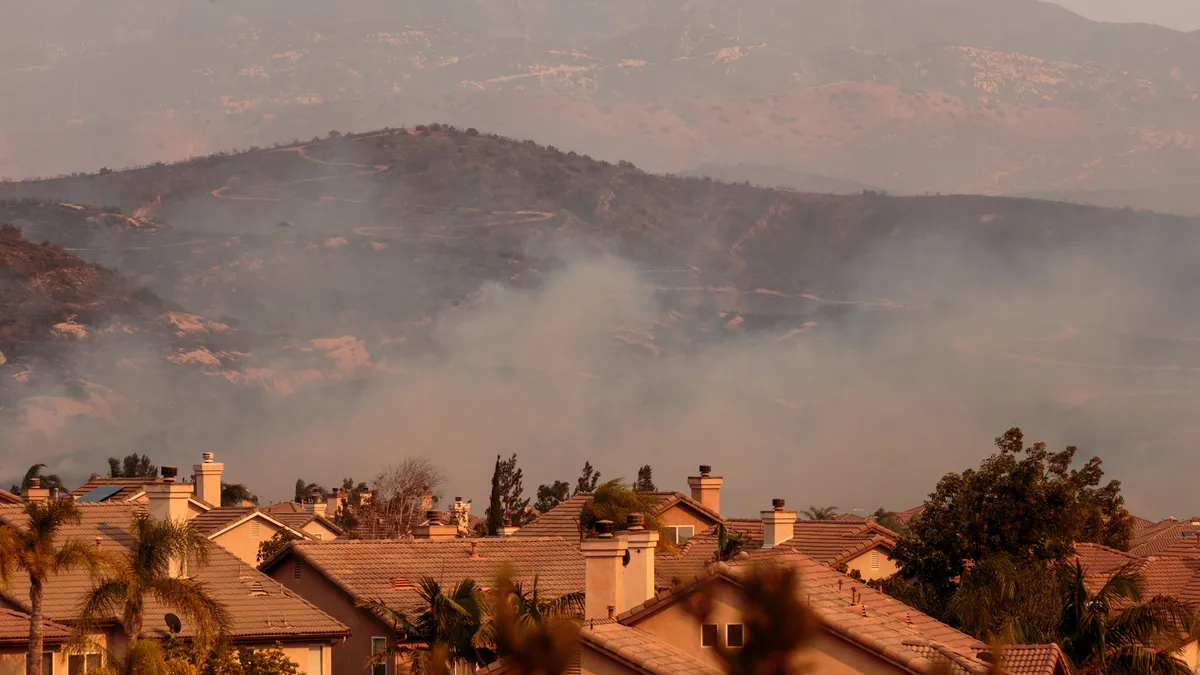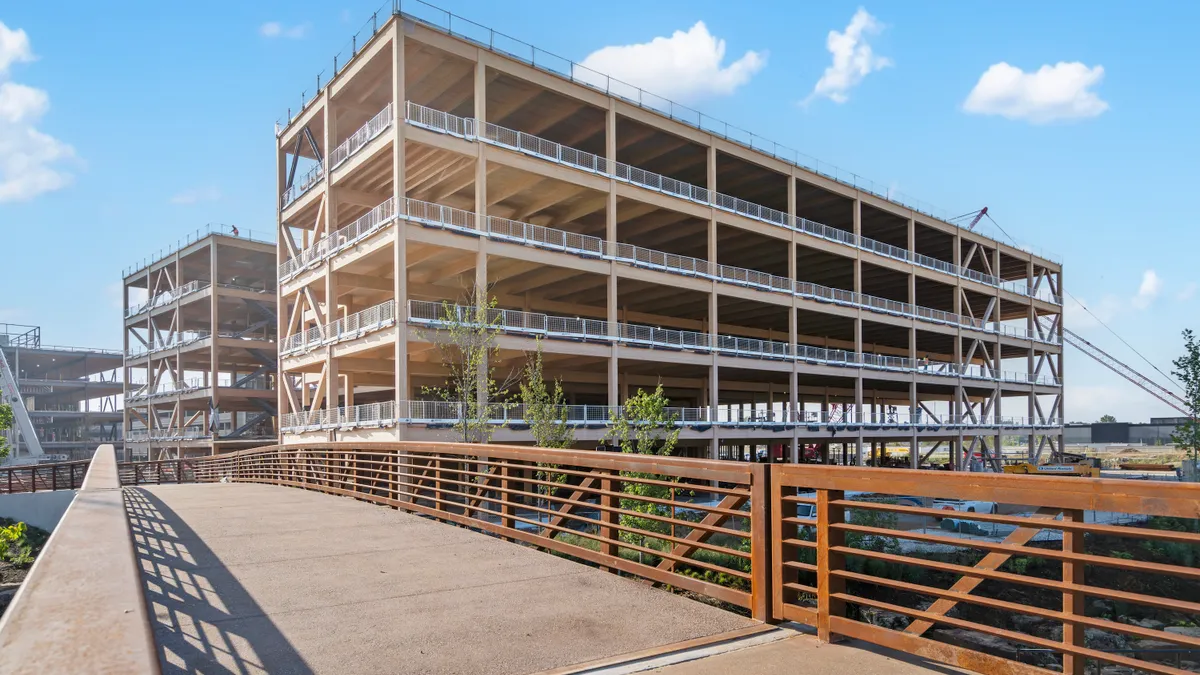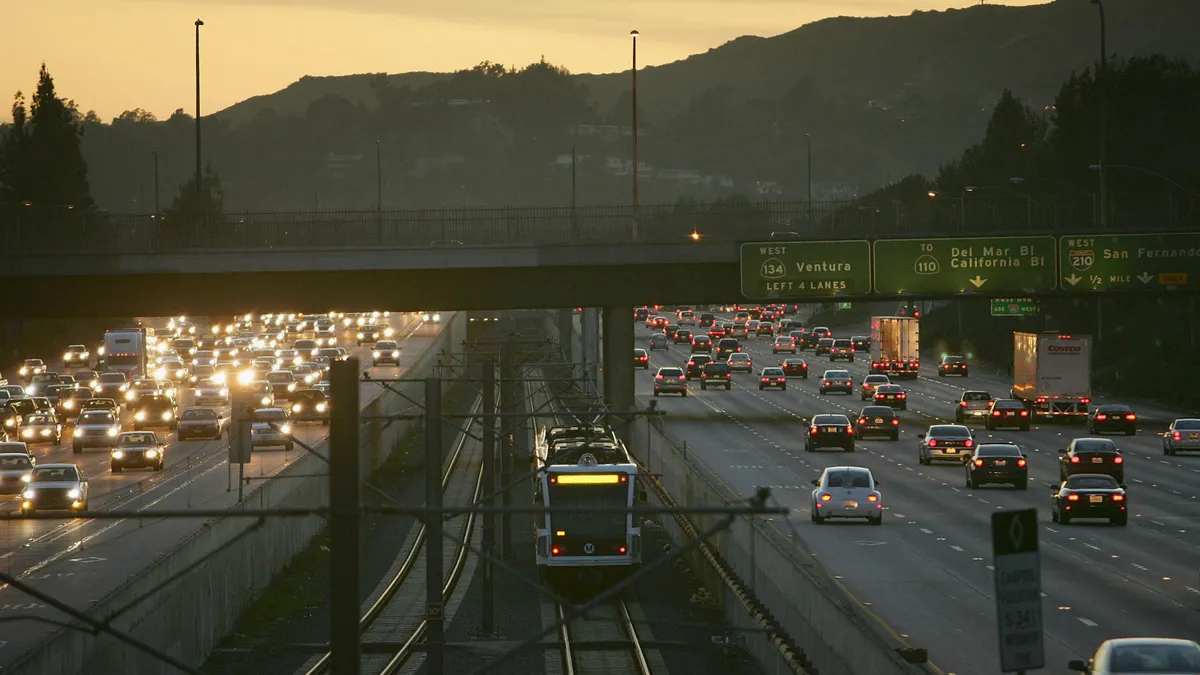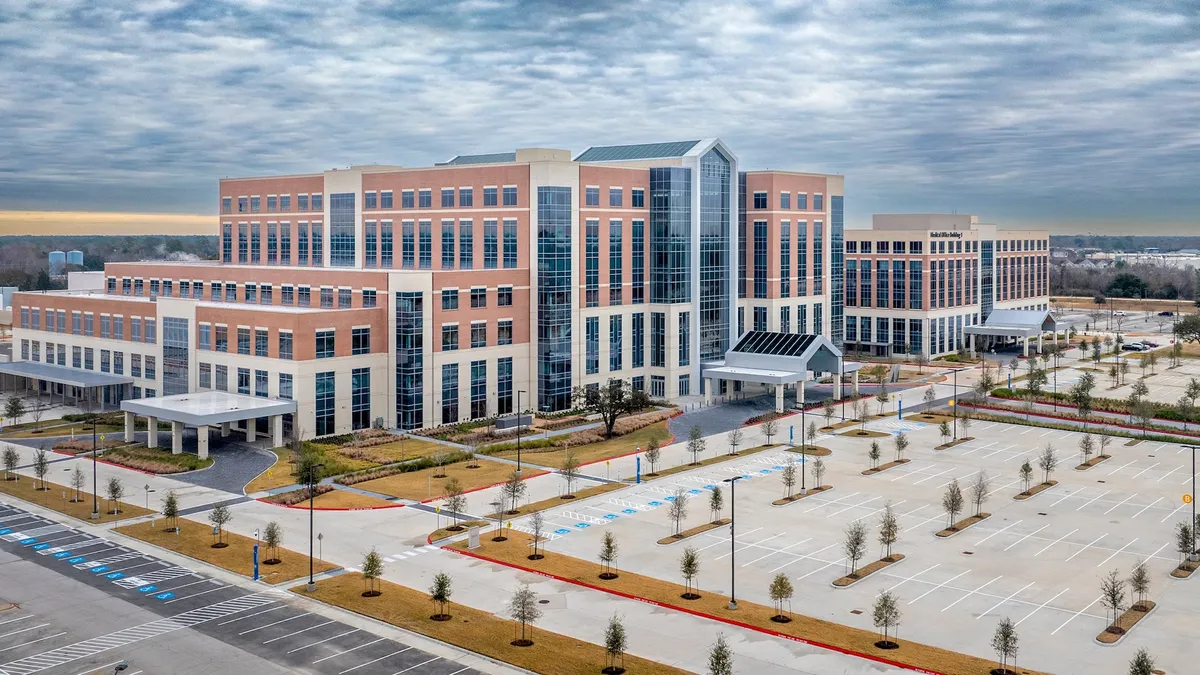Smoke from unprecedented wildfires across the West has halted construction projects over the past week while slowing others, as California, Oregon and Washington earned the dubious distinction of having the most polluted air on the planet.
In Oregon, where air quality index (AQI) levels hit 605 in Williams on Tuesday, well above the upper 500 limit designated by the EPA as hazardous, many jobsites voluntarily shut down, according to the Oregon State Building and Construction Trades Council (OSBCTC).
“There’s no order in place mandating these jobsites to shut down,” said Robert Camarillo, executive secretary for the OSBCTC. “It’s just the stand-up contractors who are taking it upon themselves to keep workers safe and shut jobs down themselves.”
But he drove by two jobsites that "were still going full steam” Tuesday, something that concerned him given the increased health risks to workers, and made him question whether authorities should take more action to protect workers’ health in the extreme conditions.
The wildfires have come during a year when construction firms already had been challenged to continue working while implementing COVID-19 mitigation protocols. The smoke generated by the fires has added new hurdles — and health threats — to onsite workers, including some shortages of N95 masks that protect against particulate matter.
“This is worse than COVID, or just as bad, because the facial coverings don’t protect you from this, and you need the N95 masks, and we’ve had shortages of those,” Camarillo said. “It’s a disaster, and it’s a regulatory issue. How long can we sustain this type of air, and be outdoors working? There’s got to be some limit, some threshold, because this intensifies workers’ risks, and these fires are probably going to be something we will have to continue to deal with.”
| Air Quality Index (AQI) Values | Level of Health Concern |
|---|---|
| 0-50 | Good |
| 51-100 | Moderate |
| 101-150 | Unhealthy for sensitive groups |
| 151-200 | Unhealthy |
| 201-300 | Very unhealthy |
| 301-500 | Hazardous |
AQI values from the U.S. Environmental Protection Agency
On Friday, Oregon recommended that employers stop outdoor work activity when AQI reaches 151, the EPA’s threshold for unhealthy. But it hasn’t put out an order to stop work during extreme AQI readings like those seen Tuesday, and a spokesman for the state’s OSHA agency said there weren’t any plans to do so.
“We don't anticipate doing an emergency order at this point,” said Aaron Corvin, public information officer at Oregon OSHA. “What we're trying to do is just get employers and workers to engage in a discussion of how to basically minimize the immediate risks.”
Contractors rethink game plans
In California, employers must provide N95 respirators for voluntary use by outdoor workers when AQI is 151 or greater, and must require workers to wear them when AQI exceeds 500, but there is no requirement to stop work for elevated AQI levels.
“California contractors have experienced heightened hazards from unhealthy air quality and extreme heat," said Peter Tateishi, CEO of Associated General Contractors of California. "We've worked diligently to ensure contractors have the latest Cal/OSHA emergency regulations for wildfire smoke, and the National Weather Service and Cal/OSHA high heat advisories for outside work.”
San Diego-based Helix Electric voluntarily shut down jobs in the California cities of Hanford and Turlock last week when AQI exceeded 200. But Eric Simmons, corporate safety officer for the 2,400-employee firm, said the state’s guidance similarly puts subcontractors in a position where they have to voluntarily decide to take action, while hoping general contractors (GCs) are sympathetic to any resulting scheduling setbacks.
“California doesn't have an upper limit, so that doesn’t really give us anything to work with,” Simmons said. “Nobody wants to work at 500, and we’ve had conversations with our GCs where we’ve said we’re not going to work in this, and they’ve thankfully been receptive to it.”
But doing so, in turn, puts GCs in an awkward situation with owners, where they have to choose between worker safety and on-time performance.
“It puts the GCs in a little bit of a spot with the owner, because they can’t say, OSHA mandates we can’t work in these conditions,” Simmons said. “The document kind of says the opposite. It says, hey, you can keep working. You just put them all on a respirator.”
Beyond that, Simmons says the timing of the wildfires has been particularly hard on workers, who were already stressed due to COVID-19 compliance this year.
“They can't go to the bar and watch a sports game or do the things that they would normally do to deal with their stress,” Simmons said. “Then, on top of that to wake up and the sky is red and ominous, it’s a lot. So we’re trying to be mindful of everyone’s stress levels.”
A stressful situation
In Chico, California, one construction firm last week gave workers the option to stay at home if they weren’t comfortable working in the thick smoke from the Bear Fire (since renamed the North Complex West Zone Fire). But two staff who lost homes in the 2018 Camp Fire asked to come to work to take their minds off the new fires anyway, only to abruptly leave again when new evacuation warnings and orders were issued near their new homes.
"Both of them just finished building after their old homes burned down," said Rod Winkle, senior vice president at Franklin Construction, which focuses on earth moving and road paving. "It's basically PTSD from the Camp Fire."
The firm canceled a road-sealing job last week due to heavy amounts of ash falling on the ground, and was also avoiding paving and line painting, because those jobs would be complicated by lower temperatures due to the sun being blotted out by smoke and ash getting into road-building materials.
“The ash would have contaminated it,” Winkle said.
On Tuesday, the company confirmed that at least one of its workers lost a cabin in the town of Berry Creek, which was scorched to the ground last week. It added to the list of 13 Franklin employees that lost homes in the Camp Fire in 2018.
Checking AQI each morning
At Sacramento-based Kitchell CEM, which focuses on commercial construction management throughout California, president Wendy Cohen said smoke from fires across the state had led to a reduction of 10% to 20% of her workforce over the past week or so. As part of her daily routine she monitors AQI via an app on her phone; yesterday the air quality in Sacramento was moderate in the morning before being rated as unhealthy for sensitive groups later in the day.
“We’re having conversations on our jobsites with our trade contractors and trade partners and then really starting to evaluate what measures we need to take, who's working outside, and who's working indoors,” Cohen said. “We haven’t had to stop work across the board at this point, but we’ve definitely had a few days where we’ve had a reduced force on site.”
She’s been outfitting workers with N95 masks, although she also noted those have become harder to come by, and has been asking her staff who are sensitive to air quality issues to self identify to be excused from duty, with pay.
It’s just another crisis that’s being thrown at construction companies in 2020.
“We always care about safety and health of our employees, but now it's like these outside forces coming in that we've never really had to consider,” said Cohen, who noted that with everything else 2020 has thrown at her team, she’s prepared for the worst for the remainder of the year.
“We don’t want to be overly optimistic at this point,” Cohen said. “I told our team we need to be planning for torrential rains come December.”






















